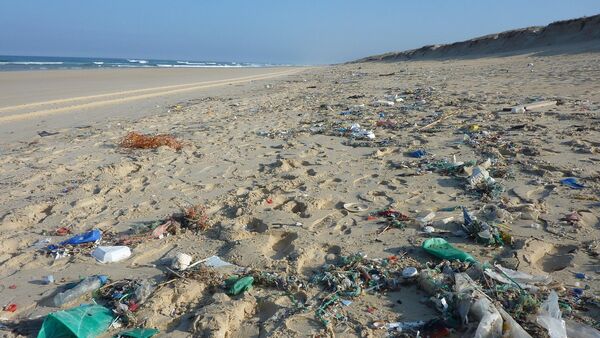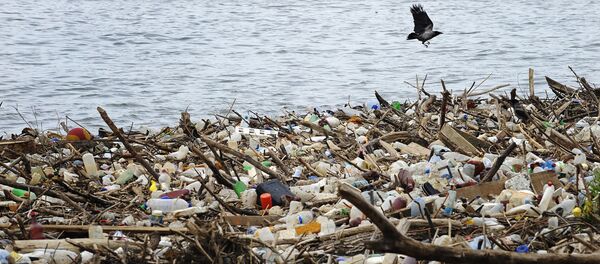Kjersti Busch of the environmental organization SALT, which has its headquarters on the Lofoten islands in northern Norway, has partially blamed the fishing industry for the pollution.
"Lost or dumped fishing nets can continue to ensnare fish and other marine animals for years in 'ghost fishing,' where no one actually takes care of the catch," Kjersti Busch told Swedish national broadcaster SVT.
Despite Norway's own fishermen being identified as polluters, much of the plastic washing ashore is from other parts of Europe, and even other continents.
"We have actually encountered plastic debris coming all the way from the United States," Bo Eide from the environmental office in Tromsø Municipality in northern Norway told SVT.
In February, a stranded whale outside the city of Bergen on Norway's western coast made national headlines. The whale's stomach was filled with plastic instead of food, with 30 plastic bags and large amounts of other plastic debris removed during the post-mortem. The recovered plastic bits included candy wrappings, food containers and garbage bags. Some of the products retained fragments of text and could be traced to Norway, Denmark and the UK.
Hval-funn vekker internasjonal oppsikt: https://t.co/pfBTTqRDvk #mittmuseum pic.twitter.com/PNDU1IuupQ
— Universitetet Bergen (@UiB) 7 февраля 2017 г.
"The finding is indicative of a worsening state of the oceans. Plastic is probably the world's fastest growing environmental problem. It is the real sea monster and we have to fight it," Norwegian Environment Minister Vidar Helgesen told Norwegian national broadcaster NRK.
According to the Swedish Marine and Water Authority (HAV), about 6.4 million tons of debris is thrown in the world's oceans each year. Most of it is plastic, which is deadly for wildlife. Over a million birds and 100,000 mammals die each year due to debris in the oceans.
An earlier report by the World Economic Forum warned that if nothing is done to plastic emissions, there will be more plastic than fish in the oceans 30 years from now.
Never miss a story again — sign up to our Telegram channel and we'll keep you up to speed!







